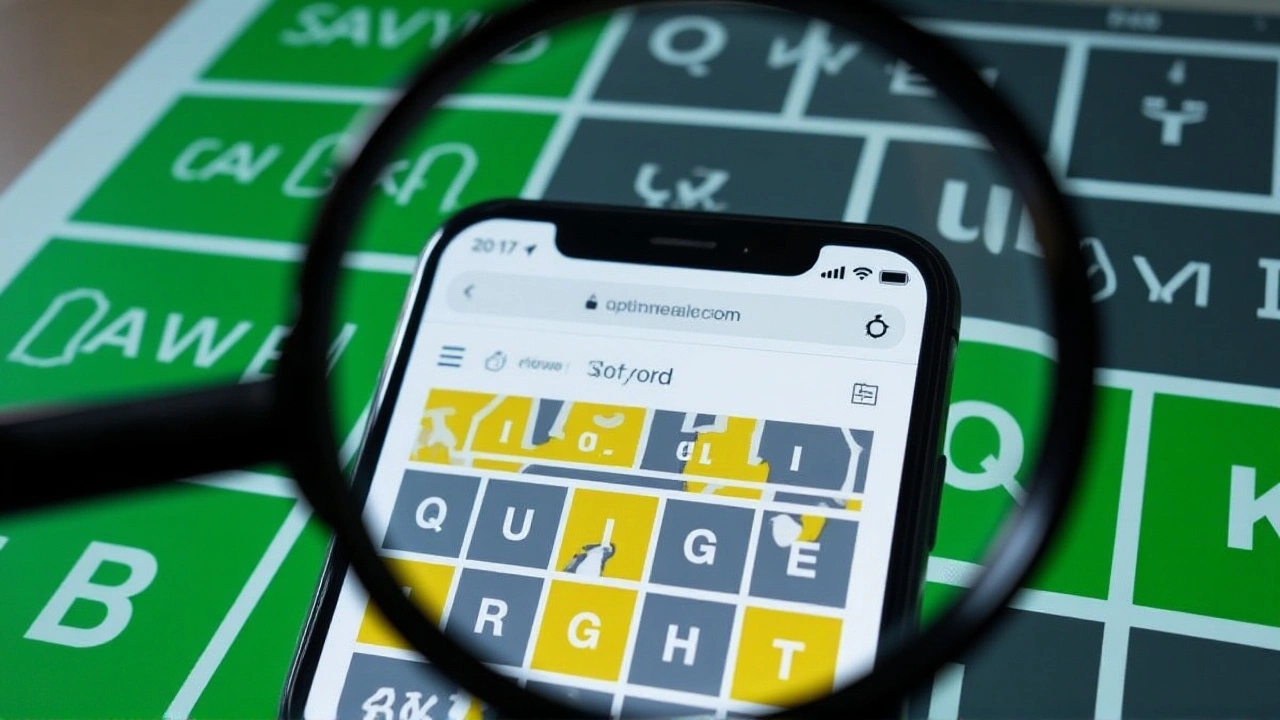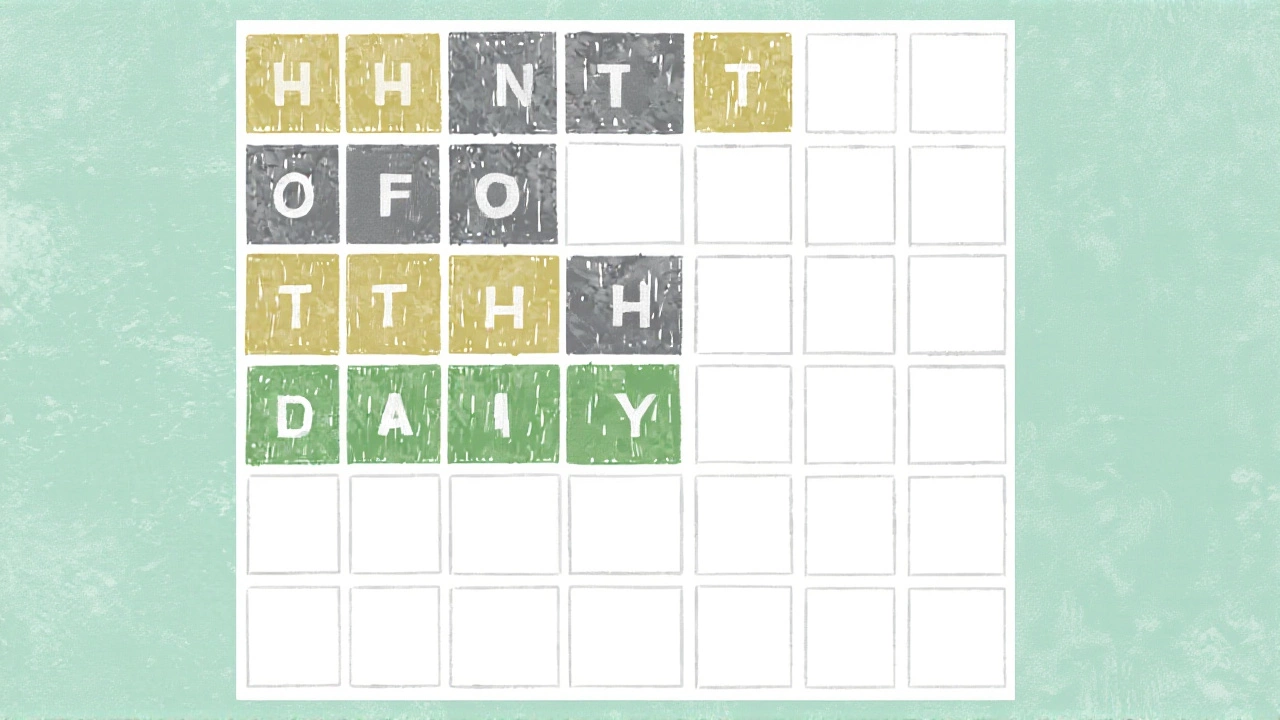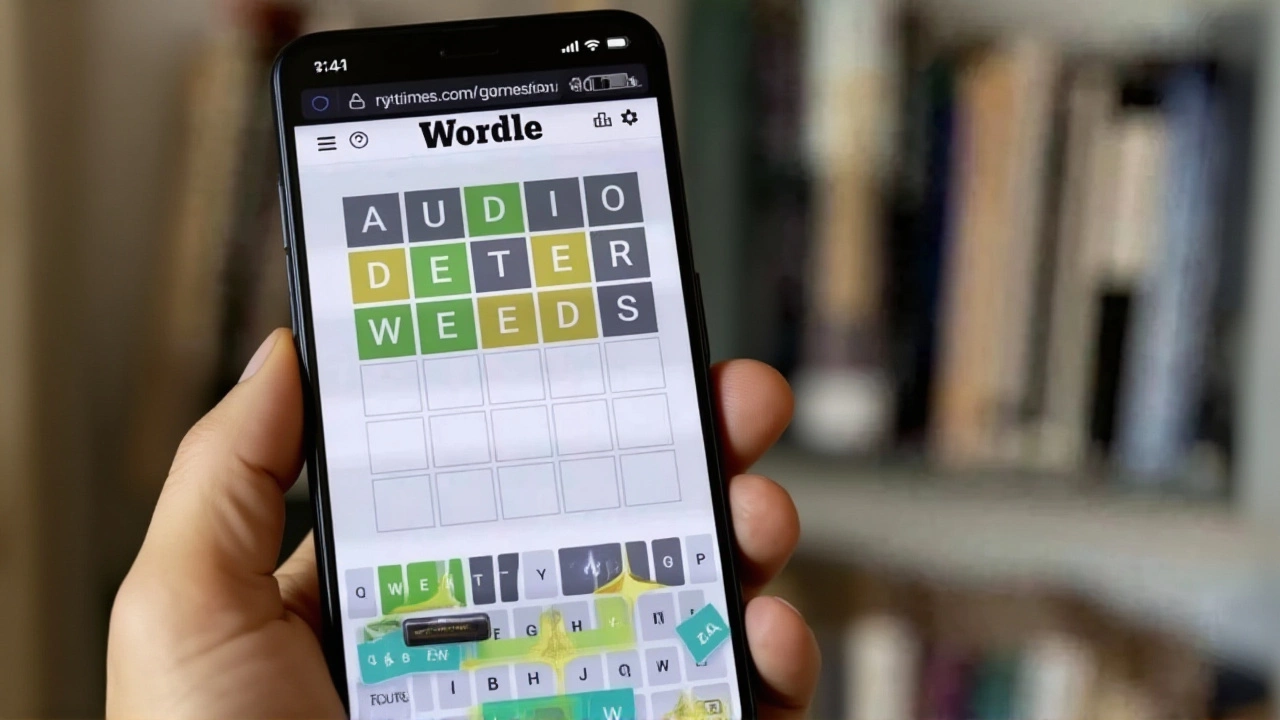The word DALLY was the answer to Wordle #1560 on Sunday, October 26, 2025 — a deceptively simple five-letter word that sent players scrambling. Meaning "to waste time" or "procrastinate," DALLY slipped past many who expected something more common. But here’s the twist: while Try Hard Guides labeled it #1560, TheGamer.com called it #1590. A 30-puzzle gap. No explanation. Just confusion.
Why the Number Discrepancy Matters
It’s not just a typo. The numbering mismatch between major gaming sites suggests a deeper issue: no single source controls Wordle’s official puzzle count anymore. Since The New York Times bought Wordle in 2022, the game’s internal tracking has been opaque. Try Hard Guides and TheGamer.com both claim authority, yet they’re using different starting points. Some fans suspect the Times may have reset or skipped puzzles during maintenance — maybe even during the 2023 server overhaul. Others think it’s just editorial drift. Either way, if you’re tracking your streak across platforms, you’re flying blind.
The Rise of a Daily Ritual
Back in early 2021, software engineer Josh Wardle built Wordle as a quiet gift for his partner. No ads. No notifications. Just a simple word game shared over text. Within months, it exploded. Group chats turned into Wordle scoreboards. Twitter threads lit up with green and yellow squares. By mid-2022, the game had over 300,000 daily users — and The New York Times bought it for a reported $2 million. Now, it’s part of millions of daily routines. People wake up, check their phones, and solve it before coffee. It’s not just a game — it’s a shared cultural pause.
How the Game Works — And Why DALLY Was Tough
Players get six chances to guess a five-letter word. Green means letter and position are right. Yellow means the letter’s in the word, but misplaced. Gray? Gone. Simple. But DALLY? That’s where things got sticky. It’s not a word most people use daily. "I thought it was DALLY as in "dally with danger,"" said one Reddit user. "But I kept guessing DAILY, DALLY, DALLY... and wasted three tries before I realized I was overthinking it." Unlike common solutions like CRANE or SLATE, DALLY leans into obscurity. It’s a verb rooted in 16th-century English, meaning to loiter or delay — sometimes even with a romantic connotation, like "dallying in the garden." For non-native speakers or younger players, it’s unfamiliar territory. Try Hard Guides noted in their October 26 article that "words like DALLY are the ones that break streaks," especially when players expect more modern vocabulary.

The Ecosystem That Followed
Wordle didn’t just become popular — it spawned a whole genre. Within a year of its explosion, spin-offs like Dordle (two puzzles at once), Quordle (four puzzles), and Heardle (guess the song) flooded app stores. Bored Panda reported on October 26 that these variants now collectively draw over 12 million daily players. The original’s simplicity is the key. No timers. No paywalls. Just a clean grid and a satisfying click.
What’s Next? Midnight Reset, Global Sync
Every day at midnight — local time — a new puzzle drops. No exceptions. No delays. That’s how Try Hard Guides confirmed it, and that’s how millions rely on it. Whether you’re in Tokyo or Toronto, you get the same word at the same moment. That synchronized global experience is part of what keeps it feeling special. The next puzzle, on October 27, 2025, will be #1561 (or #1591, depending on who you ask). And the cycle continues.

Why This Isn’t Just a Game
Wordle’s power isn’t in its difficulty — it’s in its predictability. In a world of algorithmic chaos, it offers a quiet, shared ritual. You don’t need to be a word expert. You just need to show up. And that’s why, despite the numbering mess, the obscure answers, and the spin-offs, it still holds its place. It’s not about winning. It’s about doing the same thing, every day, with millions of strangers.
Frequently Asked Questions
Why do different sites list different puzzle numbers for the same day?
There’s no official public record of Wordle’s puzzle numbering since The New York Times acquired it. Sites like Try Hard Guides and TheGamer.com use their own tracking systems, likely starting from different baseline counts. This has led to discrepancies of up to 30 puzzles, with no explanation from the Times. Players should treat numbers as unofficial references.
Is DALLY a common Wordle answer?
No. DALLY ranks among the less common solutions. According to WordleStats.com, only 0.7% of all puzzles since 2021 have used words from the "obscure verb" category like DALLY, DRAIN, or FALTER. Most solutions are everyday words — think CRANE, SLATE, or GRIND. DALLY’s rarity is why it tripped up so many players on October 26.
Who created Wordle, and why did The New York Times buy it?
Software engineer Josh Wardle created Wordle in late 2020 as a personal project for his partner. It went viral in 2021, hitting 2 million daily users by January 2022. The New York Times acquired it in February 2022 for an estimated $2 million, drawn to its clean design, global appeal, and potential for reader engagement — not profit. It’s now a cornerstone of their daily digital experience.
How do variants like Quordle and Heardle relate to Wordle?
They’re direct descendants. After Wordle’s success, developers quickly built spin-offs using the same color-coded guessing mechanic. Quordle challenges you with four words at once; Heardle turns it into a music guessing game. These variants now draw over 12 million daily players combined. But none have replicated Wordle’s cultural simplicity — or its global sync.
Does the time zone affect when I get my daily Wordle?
No. The puzzle resets at midnight local time for each player, not UTC. That means someone in Sydney gets their new puzzle 12 hours before someone in Los Angeles — but everyone gets the same word at their own midnight. This design choice, confirmed by Try Hard Guides, ensures fairness and global participation without forcing players to stay up late or wake up early.
Will Wordle ever change its format?
The New York Times has consistently said no. Despite pressure to add difficulty levels, timers, or subscriptions, they’ve kept Wordle unchanged since the acquisition. Their goal isn’t monetization — it’s retention. As one insider told The Verge in 2024, "Wordle’s magic is in its stillness." That’s why DALLY, even with its obscurity, still feels like part of the same quiet ritual from 2021.
